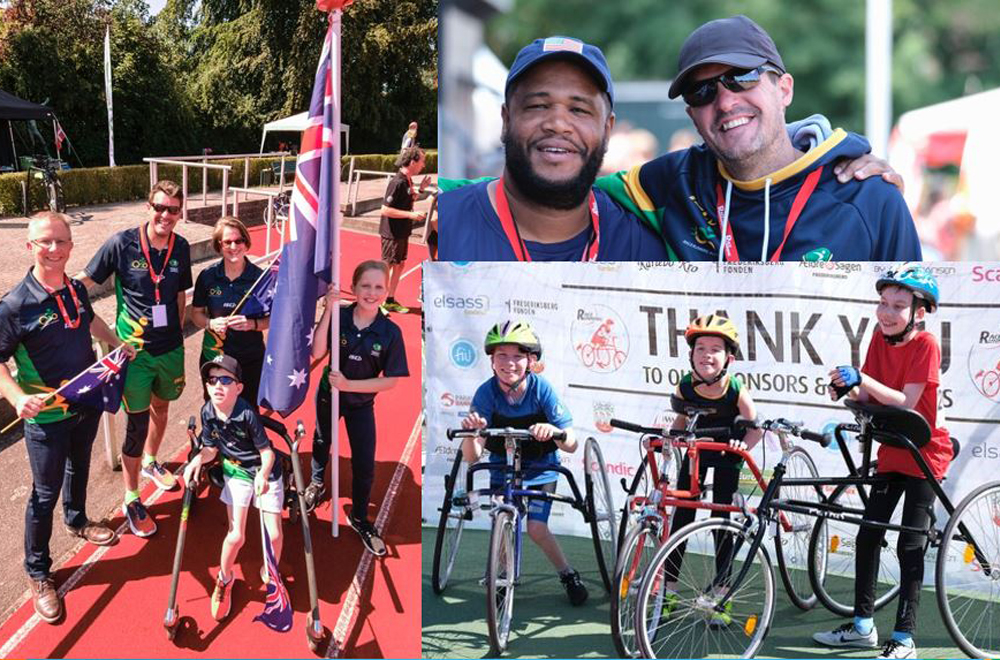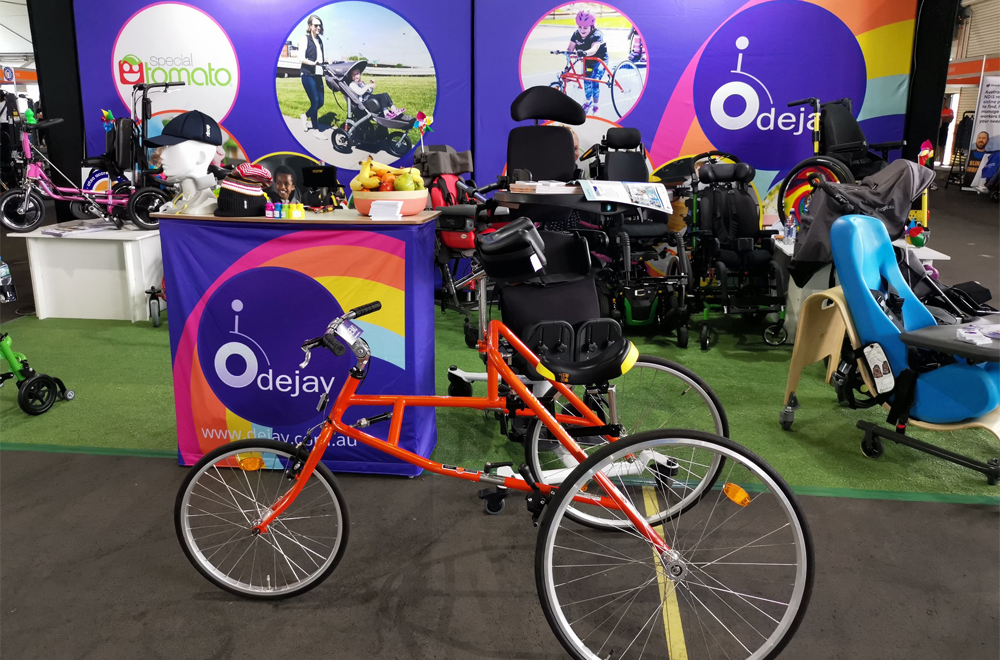A fleet-of-foot sport could help children with cerebral palsy (CP) participate in sports and physical activities.
A University of South Australia study is exploring the potential of RaceRunning to help children with CP improve their movement, social connections, and mental health. RaceRunning or Frame Running, uses a three-wheeled ‘bike’ frame to support the bodyweight of a person who has a gait impairment, allowing them to propel themselves forward and move at quick pace.
The study will engage 10-15 children and teenagers, aged 6-17 years with cerebral palsy in a 12-week RaceRunning trial during which their physical, social and mental health will be monitored.
Chief investigator, Associate Professor Kade Davison said boosting physical and social opportunities among children and teens with cerebral palsy could have lifelong benefits.
“Physical activity is essential for optimal physical, emotional and psychosocial development of all children, yet for kids with cerebral palsy, the unpredictability of their movements can make physical movement difficult, affecting their self-esteem, confidence and independence,” he said.
“RaceRunning offers these kids the opportunity to be with kids who have similar disabilities, empowering them to experience the freedom of greater mobility and importantly, a sense of fun and comradery with their peers.”

Women and Children’s Health Network (WCHN) head of research, Paediatric Rehabilitation Department, Associate Professor Ray Russo, said families of patients who do RaceRunning claim it has helped their children with improvements in muscle strength, mobility and participation in sporting activities. “However, there is little scientific research in this field, especially in the areas of social connections and mental health, so this research project is an exciting opportunity to assess the benefits of this growing sport,” he said.
The study will work with children with a Gross Motor Function Classification Score (GMFCS) of III, IV or V. Each will be fitted for an appropriately sized RaceRunning frame and participate in at least one of two group sessions per week over the 12-week study.
The study is being conducted in partnership with the Women’s and Children’s Health Network (WCHN) and funded by the Channel 7 Children’s Research Foundation.
CP is the most common childhood neurodevelopmental disability with one in 700 Australian births diagnosed with the condition.

